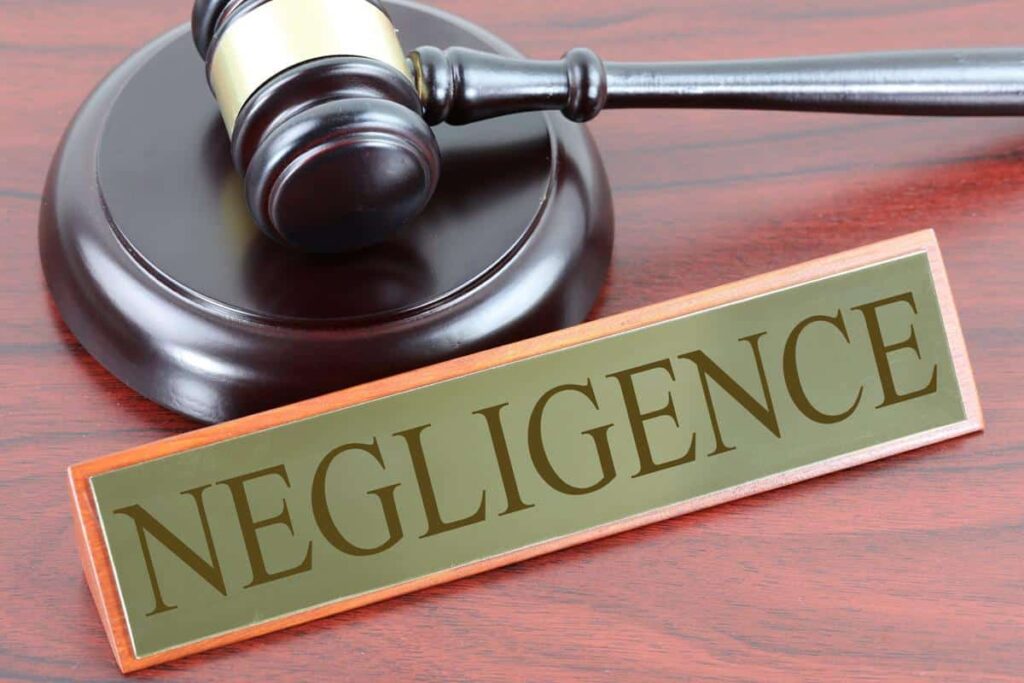What is Negligence?

In the United States, people are expected to act in a way that does not cause injury to others. Generally speaking, if someone acts in a careless way that causes injury to another person, the person who caused the injury will be legally liable for the resulting harm under the legal principle of “negligence.”
What is the definition of negligence? Negligence is the failure to act in the way that a reasonably prudent person would have done in a similar situation.


Elements of Negligence
To win a negligence case, an injured person (or the plaintiff) must prove four elements:
- Duty
- Breach
- Causation
- Damages
Duty
To win a negligence claim, a plaintiff must first show that the defendant owed the plaintiff a legal duty of care. In some instances, the relationship between the two parties may create that duty. For example, a doctor owes a patient the duty to provide a competent standard of care when providing medical treatment. All drivers have the duty to act with reasonable care when they are driving a vehicle.
Breach
Once duty has been shown, a plaintiff must show that there was a breach of duty because the defendant did something (or didn’t do something) that a “reasonably prudent person” would do under similar circumstances. A reasonably prudent person is a legal standard that refers to how an average reasonable person would act if they knew what the defendant knew at the time.
Causation
If duty and breach have been shown, the next step is for the injured party to show that defendant’s actions actually caused his or her injury. For example, if a driver was texting and failed to see someone in front of them had stopped and caused a car accident, the driver’s behavior could be seen as the “proximate cause” or actual cause of that accident.
Damages
Once the court has determined that there was a duty to provide a certain level of care, that duty was breached, and that the defendant’s breach caused the plaintiff’s injury, the plaintiff must show the damages that were suffered. In a personal injury case, damages will typically include property damage, medical bills, and lost wages.
Calculating damages can be complicated and will vary from state to state. The amount of damages that a plaintiff receives may be reduced by the amount the amount that they are determined to have contributed to the accident. In Nevada, this is known as the comparative negligence doctrine. In other states like Alabama and Virginia, a plaintiff who is found to be at least 10% at fault for an accident will recover no damages under the contributory negligence rule.
Experienced Las Vegas Personal Injury Attorneys
If you or a loved one has been in an accident, you should get legal advice from an experienced personal injury attorney who can help you protect your rights.
If you are looking for a law firm with experienced personal injury attorneys, contact Anthem Injury Lawyers today. Our phone number is (702) 857-6000. We offer Free Consultations.





